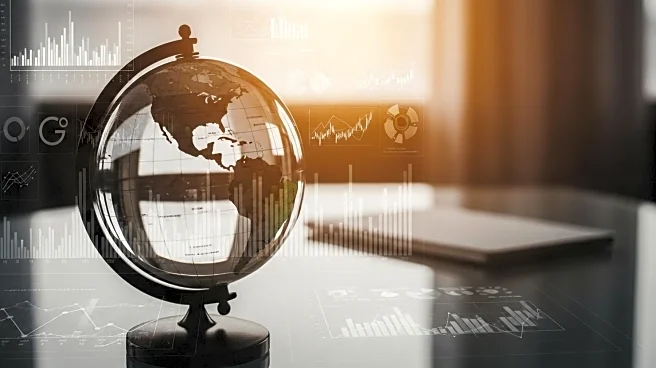What's Happening?
The semi-annual World Bank meetings are taking place in Washington DC, bringing together central bankers and finance ministers from around the world. Key topics on the agenda include global trade dynamics in the context of President Donald Trump's tariffs and strategies for fostering economic growth. The meetings aim to address the challenges posed by protectionist policies and explore solutions for sustainable development. Discussions will focus on the impact of tariffs on international trade and the potential for collaborative efforts to stimulate economic recovery.
Why It's Important?
The World Bank meetings are crucial for shaping global economic policies and addressing the challenges posed by protectionist measures. President Trump's tariffs have significantly impacted international trade, leading to shifts in economic alliances and trade patterns. The meetings provide an opportunity for world leaders to collaborate on strategies for economic growth and stability, which are essential for global prosperity. The outcomes of these discussions could influence U.S. economic policies and international relations, affecting industries and stakeholders worldwide.
What's Next?
The meetings are expected to result in policy recommendations and collaborative initiatives aimed at mitigating the effects of tariffs and promoting economic growth. Stakeholders will likely continue to engage in discussions on trade agreements and economic partnerships. The focus will be on finding common ground to address the challenges posed by protectionist policies and ensuring sustainable development. The outcomes of the meetings could lead to changes in U.S. trade policies and influence global economic trends.
Beyond the Headlines
The World Bank meetings highlight the complexities of global trade and the impact of protectionist policies on economic growth. The discussions underscore the need for international cooperation and the importance of balancing national interests with global economic stability. The meetings also raise ethical considerations regarding the equitable distribution of economic benefits and the role of international institutions in shaping economic policies. The long-term implications of these discussions could affect global trade dynamics and the future of international economic relations.










